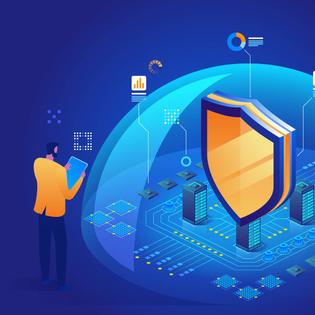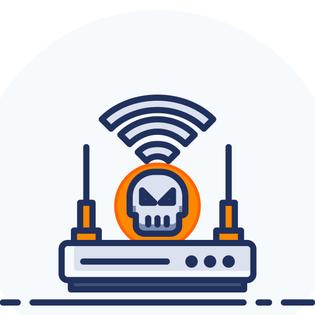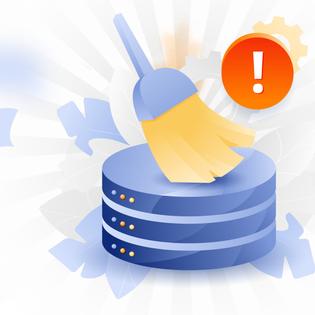Advertiser Disclosure
All About Cookies is an independent, advertising-supported website. Some of the offers that appear on this site are from third-party advertisers from which All About Cookies receives compensation. This compensation may impact how and where products appear on this site (including, for example, the order in which they appear).
All About Cookies does not include all financial or credit offers that might be available to consumers nor do we include all companies or all available products. Information is accurate as of the publishing date and has not been provided or endorsed by the advertiser.
Editorial Policy
The All About Cookies editorial team strives to provide accurate, in-depth information and reviews to help you, our reader, make online privacy decisions with confidence. Here's what you can expect from us:
- All About Cookies makes money when you click the links on our site to some of the products and offers that we mention. These partnerships do not influence our opinions or recommendations. Read more about how we make money.
- Partners are not able to review or request changes to our content except for compliance reasons.
- We aim to make sure everything on our site is up-to-date and accurate as of the publishing date, but we cannot guarantee we haven't missed something. It's your responsibility to double-check all information before making any decision. If you spot something that looks wrong, please let us know.
Online safety is a primary concern for anyone who spends time on the internet. With so much malware created every day, protection from internet viruses is crucial and could keep your personal data from being stolen. There are over 500,000 new malware pieces detected every day.
Currently, there are over one billion known computer viruses. Many parents attempt to monitor their children’s online activities, but malware doesn’t discriminate based on age. Cybercriminals can be sneaky and will find all kinds of ways to infect your device.
Keep reading for our cyber safety tips and learn how you can stay protected online.
2. Use strong passwords
3. Use two-factor authentication
4. Install antivirus software
5. Keep your software updated
6. Secure your device when using public Wi-Fi
7. Learn how to spot online scams
8. Avoid sites that don’t start with https://
9. Don’t overshare personal info
10. Backup your personal data
How to report online crimes
Internet safety FAQs
Bottom line
1. Understand online dangers
Any time you go on the internet, you risk getting a computer virus. Understanding the dangers will help you avoid them in the future.
Cybercriminals are coming up with new malware and new ways to get it onto your device. Some of the most common types of online threats are identity theft, phishing, and ransomware attacks.
Hackers will use different ways to get your personal information. They can steal your identity and use it to illegally obtain credit cards and fraudulently make purchases in your name. Cybercriminals also use email phishing to lure you into giving them your private data. They can then lock down your device and hold it for ransom until you agree to pay them whatever they demand.
When you know what to look for, you’ll be better prepared to see potential threats before they become a problem. Hackers count on you not suspecting malicious software. If you notice their attempts, they may not be able to spread these viruses.
2. Use strong passwords
One of the best ways to keep your data safe is to use strong passwords. That means you use a password that others won’t easily guess. Unfortunately, some people still use generic, easy-to-guess passwords like 123456.
Many people concerned with internet safety tend to use combination passwords. These can be a mix of uppercase and lowercase letters, characters, and numbers. An example of a strong password would be Internetfun!123. You can mix it up and have fun with it, as long as it’s unique and hard for others to crack.
3. Use two-factor authentication
You can protect your personal data with an extra security layer called two-factor authentication. Using two-factor authentication, you'll need another code or password to access your device or specific sites, like banking websites.
You’ll use two login credentials. After the initial login, you’ll get a message containing a code on a device that belongs to you. That may be a cell phone or email address on your computer that you’ve listed as a known device. You won’t get access to the account until you enter that code.
4. Install antivirus software
You can use antivirus software to scan for malicious files. If malware has infected your device, you can use the antivirus software to remove it. Most antivirus software programs will allow you to set it up for automatic scanning, which runs in the background while you work, or you can set it to run while you are not using your device.
With malware threats getting more advanced, it makes sense to have an antivirus program in your arsenal to fight against them. Having a trusted antivirus gives you peace of mind when accessing the internet.
5. Keep your software updated
When you have antivirus software, you need to keep it updated to give you the best online safety. Your antivirus program will likely send notifications when it has a new update. Don’t bypass that notice.
Updates may take some time, but there are often security patches included that guard against new malware that could infect your devices or apps. If your security software isn’t updated and doesn’t recognize a threat, it won’t give you protection from internet virus
6. Secure your device when using public Wi-Fi
If you take your device to public areas, be cautious when using public Wi-Fi networks. These networks are not always secure. They also attract tons of traffic because they’re free to use.
One option is to use a virtual private network (VPN) for a more secure internet connection. A VPN encrypts any information sent from your device over a public network. That keeps others from hacking into your information.
It’s also crucial that you physically secure your devices when in public. Notice your surroundings and don’t have your screens where others can easily view them. Lock or log off your device when you need to leave it, like when going to the restroom or grabbing another coffee.
7. Learn how to spot online scams
If you get emails asking for your passwords, these could be scams that cybercriminals use to steal your personal data, like your bank account info. You may not realize the email comes from a scammer, but many hackers make phishing emails look like legitimate sites. Some of these phony emails even promise something for free if you click on a link or attachment.
Some people even get scammed because an email says it’s from their employer. Too often, the scammer may pretend to be from the IT department needing your credentials. The email looks valid, but your company probably won’t send emails asking for your personal information.
If you get an email asking for personal information, you should use caution and make attempts to reach the sender by phone.
For instance, if the email looks like it comes from your bank and asks you to enter your account information, that could be a phishing attempt. Report the email immediately to your banking institution. Don’t call the phone number attached to the email because it could contact a cybercriminal.
Instead, if you get an email that claims to be official business, look up a legitimate phone number online and call them.
8. Avoid sites that don’t start with https://
You may have encountered a message in the past that lets you know a site may not be secure. That could be because the site is missing the “s” in the web address, which stands for “secure.” Another way to tell if a site is secure is to look for the padlock icon next to the URL in your browser’s search bar.
Sites that start with “https” should be secure and are difficult for hackers to penetrate. If a site is missing that “s” or starts with just “http://,” that means it’s not secure and you should avoid it. Those sites are more likely to contain malware.
9. Don’t overshare personal info
Sharing too much info online is a big mistake that many people make. You may see quizzes on social media asking you to play this fun game and let your friends know more about you. The problem is that you also let cybercriminals in on lots of information that can get stolen. They can also use these life facts about you to guess your passwords.
While sharing some details online may seem harmless, you should avoid oversharing. Too many people use social media as their diary and could give hackers all the information they need.
Learn how to update your online privacy settings to avoid sharing your location or browser history.
10. Backup your personal data
There are plenty of ways to backup your personal data in case your computer crashes or if you get infected with malware. You should have a plan that keeps frequent backups a priority in case you lose your data due to a computer virus.
When you make copies of your files, you can also keep them out of a hacker’s reach if you need to remove a virus from your device. You can use a USB drive, external hard drive, or print physical copies if you like.
If you get a computer virus warning and go to backup your files, you risk copying the virus and then downloading it back onto your computer when you try to restore your files.
How to report online crimes
If you’ve been a victim of cybercrime, you can report it to the appropriate authorities. There are different agencies that handle these crimes depending on the specific nature of the crime, like the FBI and justice department divisions. The table below displays the crimes by type and the correct agency for reporting them.
| Type of crime | Where to report it |
| Hacking | Internet Crime Complaint Center (IC3) |
| Online scams | Federal Trade Commission (FTC) |
| E-commerce with foreign companies Online shopping |
Econsumer.gov |
| Copyright piracy Trademark counterfeiting |
FBI U.S. Immigration and Customs Enforcement (ICE) Internet Crime Complaint Center |
| Espionage Theft of trade secrets |
Local FBI office or the online FBI tip form |
Internet safety FAQs
What should you not do online?
You should not overshare your personal information while online. You also should not click on suspicious links or ads because these could contain malware.
Why should we stay safe online?
When we’re online, we’re a bit vulnerable to cybercriminals who may try to steal our personal data. It’s unfortunate, but the best way to stay safe is to be cautious and use security tools like antivirus software.
Bottom line
When you’re on the internet, it’s smart to follow these approaches for the best online protection. Using these safety tips helps give you the most advanced computer security and could keep your most personal data safe. As a reminder, implementing the following steps can enhance your online security:
- Understand and avoid online dangers.
- Use strong passwords.
- Use two-factor authentication.
- Install antivirus software.
- Keep your antivirus software updated.
- Secure your device when using public Wi-Fi (consider using a VPN).
- Learn how to spot online scams.
- Avoid sites that don’t start with “https://.”
- Don’t overshare personal info.
- Back up your personal data.
You also should report any internet crimes to the correct federal agency using the links above. If you haven’t started using some of the tips we’ve listed, there’s no better time to begin than now. One of the best ways to start protecting yourself online is with good antivirus software.
-
All-in-one protection for your personal info and privacy
-
Excellent antivirus protection
-
Additional features like a file shredder and parental controls
-
Multiple pop-ups for text notifications can be annoying





